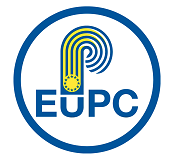2007
Position of EuPC on the resolution No. XX/398/07 of the City Council in Łódź- legal analysis
Legal Analysis
Content of the Decree:
RESOLUTION No. XX/398/07
OF THE CITY COUNCIL IN ŁÓDŹ
Dated 25th October, 2007
On implementing a prohibition of using disposable and free of charge plastic bags in retail trade and service sectors in the City of Łódź
Based on Art. 40.3 of the Act on communal self-government dated 8 March 1990 (Dz. U. of 2001 No. 142, item 1591, as amended) as well as Art. 4.1 and Art. 4.3, Art. 14 of the Act on announcing normative acts and certain other legal acts dated 20 July 2000 (uniform text Dz. U. of 2007 No. 68, item 449), the City Council of Łódź
Adopts as follows:
Par. 1
In the area of the City of Łódź, usage of non-biodegradable, disposable, thinner than 0,1 mm and free of charge plastic bags which do not constitute indispensable packaging of goods and serve for carrying thereof shall be prohibited.
Par. 2.
1. Whoever shall not observe the prohibition set forth in Par. 1, he shall be subject to a fine imposed under the principles defined in the act on offences.
2. the fine shall be applied to the manager of the commercial establishment, in which the bags set forth in Par. 1. are used.
Par. 3.
Execution of the resolution shall be entrusted with the President of the City of Łódź.
Par. 4.
The resolution shall be effective as from 1 June 2008.
Chairman of the City Council in Łódź
Maciej GRUBSKI
Author of the resolution:
Krzysztof Piatkowski
EuPC is the leading EU-level Trade Association, based in Brussels, representing European Plastics Converters. Its powerful European Plastics Network exists to support the beneficial use of plastics worldwide, especially providing plastics converting companies with a voice in European legislation. EuPC now totals about 51 European Plastics Converting national and European industry associations, it represents close to 50.000 companies, producing over 45 millions tonnes of plastic products every year. The European plastics industry makes a significant contribution to the welfare in Europe by enabling innovation, creating quality of life to citizens and facilitating resource efficiency and climate protection. More than 1.6 million people are working in about 50.000 companies (mainly small and medium sized companies in the converting sector) to create a turnover in excess of 280 billion € per year.
Background:
The City Council in ŁÓDŹ, in Poland has adopted on 25th October 2007 a Council Resolution based on which in the area of the City of Łódź, usage of non-biodegradable, disposable, thinner than 0,1 mm and free of charge plastic bags which do not constitute indispensable packaging of goods and serve for carrying thereof shall be prohibited. Moreover whoever shall not observe the prohibition set forth in the resolution shall be subject to a fine imposed under the principles defined in the act on offences; the fine shall be applied to the manager of the commercial establishment, in which the bags set are used.
The reasons behind the resolution, as stated in the resolution itself, are mainly visual and not based on scientific facts but on public perception; the City of Łódź outlines the benefits of plastic bags but again, like in other member States, the polluters are not the products per se but the consumers which leave the plastic bags on the streets, in parks…etc.
This measure appears to represent a failure of the public authorities in dealing with valuable products that can be easily collected and recycled thus avoiding consuming “non renewable resources” as stated in the justification of the resolution.
Member States and local authorities cannot prohibit the placing on the market of a product produced in the EU, respecting the only valid legislation, namely the Packaging and packaging Waste Directive; which is from a legal perspective hierarchically higher than any local or national legislation.
In EuPC opinion, this resolution will generate:
I. An obscure environmental benefit
II. An artificial market push towards other materials
III. An infringement of EC Law
a. Infringement of the EC Treaty
b. Infringement to European Secondary law
IV. Conclusions
I. An obscure environmental benefit
EuPC is deeply concerned by the proposal suggested by the City of Łódź because, in our view, the proposed resolution to discriminate the producers of plastic bags in Poland will not deal with “improbable” negative effects of plastic packaging on the environment without generating environmental benefits.
1. A high level of environmental protection is already ensured by the Packaging Directive; which states, ex art. 1 , that its primary objective is to guarantee a high level of environment protection and to prevent impacts on the environment; it also expresses the concept that this Directive aims at avoiding distortions and restriction of competition within the EU.
2. EuPC believes that this attack against traditional plastic appears to be a palliative to hinder the solution to the real problem of litter; which is “Consumer behaviour”. To reduce litter, a change of mentality in the consumer’s attitude is needed, not a change of the material that enwraps or carries a product. This is a field where public authorities should do more and not prohibit or put taxes that will only damage a technologically advanced industry which gives high rates of employment.
In addition, ex art. 13 of the Packaging Directive, underlines the need to inform the users, especially the consumers, of packaging on:
- the return, collection and recovery systems available to them,
- their role in contributing to reuse, recovery and recycling of packaging and packaging waste,
- the meaning of markings on packaging existing on the market,
- The appropriate elements of the management plans for packaging and packaging waste as referred to in Article 14.
Member States shall also promote consumer information and awareness campaigns.
Therefore it is a Member State responsibility to ensure that the “so called” visual impact of packaging into the environment is reduced. And that the consumer is duly informed of his duties and rights.
3. Forcing the EU market to adapt to other materials will be detrimental to those Member States that have not “artificially” shifted to a radical change in the field of single use carrier bags; artificially because the shift does not occur for nor environmental reasons nor for health reasons, but purely for a decision taken by the City of Łódź.
II. An artificial market push towards other materials
In the past years and recently public authorities (i.e. European Union and Member States) and the public have attacked strongly plastic bags. EuPC is deeply concerned for the attack on this highly advanced industry based only public perception without any what so ever scientific reason.
EuPC strongly endorses the environmental goals of the European Union towards a sustainable development and the plastic packaging industry endorsed resolutely this concept , however it believes that there is no environmental justification for favoring other materials over plastic packaging.
These initiatives from the City of Łódź demonstrates the inadequacy and the failure of the public authorities to support and put into practice ways of eliminating litter and saving the environment which are already foreseen in the packaging and packaging Waste Directive. Supporting this initiative would confirm the statements above without producing any real advantage for the environment or health of the citizens.
III. An infringement of EC Law
A. Infringement of the EC Treaty
In our view, the proposed action will likely constitute an unjustified barrier to trade and therefore an infringement of the EC Treaty. EuPC believes that artificially obliging the market to use other materials to carry different products will be detrimental to the plastic industry and will produce a malfunctioning of the internal market, since the City of Łódź proposition represent a unilateral system of “imposition” not followed by other Member States. It is interesting to state that while the European Court of Justice repetitively underlined, through many court decisions , the notion of internal market, which refers to policies facilitating the free movement of goods, services, persons and capital, thereby opening up markets and removing obstacles to free trade (also referred to as the Single Market), the Member States bend the definition under the concept of environmental protection. Article 30 of the EC Treaty should be taken into account when justifying protection matters under the flag of environmental safety (“The provisions of Articles 28 and 29 shall not preclude prohibitions or restrictions on imports, exports or goods in transit justified on grounds of public morality, public policy or public security; the protection of health and life of humans, animals or plants; the protection of national treasures possessing artistic, historic or archaeological value; or the protection of industrial and commercial property. Such prohibitions or restrictions shall not, however, constitute a means of arbitrary discrimination or a disguised restriction on trade between Member States”).
B. Infringement to European Secondary law
The proposed measure will most likely be infringing European Community legislation. Generally speaking, in implementing a certain Directive, traditionally the Member State can take into account special domestic circumstances. We should ask which are the limits of these “special circumstances”. The Member States must generate a legal situation and thus creating a system of legal certainty based on the Directive to be implemented; the objectives to be achieved (which need to be recognized with clarity) should follow the path indicated by the Directive itself; and according to art. 1 of the Packaging Directive, “This Directive aims to harmonize national measures concerning the management of packaging and packaging waste in order, on the one hand, to prevent any impact thereof on the environment of all Member States as well as of third countries or to reduce such impact, thus providing a high level of environmental protection, and, on the other hand, to ensure the functioning of the internal market and to avoid obstacles to trade and distortion and restriction of competition within the Community”. Whereas “Prevention on the environment” cannot be interpreted as the right to interfere in the market by “phasing out” certain materials and thus influencing the functioning of the Internal Market.
In addition ,the avowed intent of driving certain types of packaging off the market or limiting their market share conflicts with Article 18 of the Packaging and Packaging Waste Directive (94/62/EC), which states that “Member States shall not impede the placing on the market of their territory of packaging which satisfies the provisions of this Directive”.
IV. Conclusions
EuPC believes that a European Directive should serve the purpose of harmonization favouring the free movement of goods, capitals and persons throughout the EU; it should also serve the purpose of creating an “ex aequo” playing field where foreign EU companies have the same market opportunities as the national ones. By impeding, de facto, the placing on the market of plastic packaging such as plastic bags, the City of Łódź creates a barrier to trade justified by environmental protectionism and State aid to other industries. EU companies, currently trading and selling the product in question to Poland, will envisage sensible economical pitfalls due to the lost of a relevant market. This is clearly not compatible with the principles of the Treaty establishing the European Community. EuPC believes that this Resolution should be postponed sine die.
Brussels, 13th November 2007


